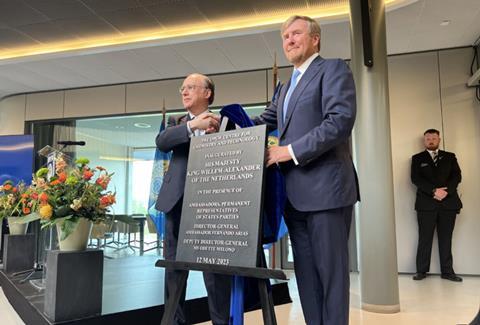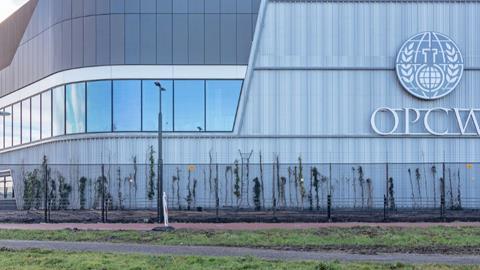On 12 May, the new chemical technology laboratory of the OPCW, the ChemTech Centre, was officially inaugurated by King Willem-Alexander.
With contributions from 57 States Parties of the Chemical Weapons Convention (CWC) and other donors, including chemical societies such as the KNCV and EuChemS, the Centre was built with a budget of €34 million. It provides modern and state-of-the-art facilities for chemical weapons research and the monitoring of the peaceful use of chemicals.
The ChemTech Centre was established to address new challenges facing the OPCW. These include the prevention of the production of chemical weapons by non-state actors and the prevention of attempts by states to use chemical weapons in a clandestine manner. The Centre will enable the OPCW to focus more on chemical weapons forensics and on controlling the production of dual-use chemicals that can be used for military purposes. These include chemicals such as thiodiglycol, which is used in the production of pesticides, plastics and dyes in industry, as well as in the production of mustard gas. The centre will also provide an opportunity to study new chemical weapons and the potential use of artificial intelligence in their creation.
In addition to the upgraded research facilities, the ChemTech Centre will also provide more laboratory space to train scientists to deal effectively with chemical weapons.

The OPCW plays a crucial role in implementing the CWC and promoting the elimination of chemical weapons. As a watchdog, the OPCW conducts inspections around the world to monitor the destruction of chemical weapons stockpiles declared under the Convention. The OPCW also investigates alleged use of chemical weapons and monitors the peaceful use of chemistry. The goal of the CWC is a world free of chemical weapons, where chemistry is used for peace, progress and prosperity. Currently, 193 countries have signed the Convention.
In 2013, the OPCW was awarded the Nobel Peace Prize in recognition of its efforts to eliminate chemical weapons. The Organisation strives for reliability and impartiality in its work, as the results of its inspections must be beyond doubt.













Nog geen opmerkingen